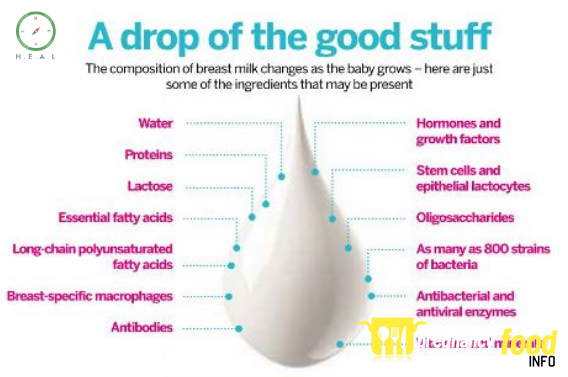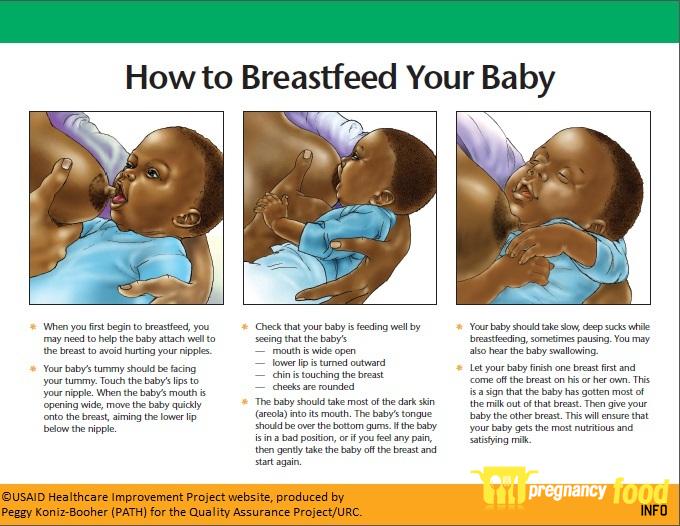Trying to figure out if your baby is getting milk from breast is a common question that new parents ask. There are several different signs to look for that will help you figure out if your baby is getting enough milk from the breast.
Signs of hunger in a baby
During the first few months of a baby’s life, it’s important to pay attention to signs of hunger in a baby. Knowing when a baby is hungry will help you feed your child more effectively. This will also help you enjoy the bonding time that you spend with your child. If you want to learn about When Can Babies Hold Their Own Bottle, you can click on it for answers and more info.
Babies often show signs of hunger by using different types of cues. Some of these cues are subtle, such as breathing fast. Others are obvious, such as sucking. If you aren’t paying attention to these signs, you may end up overfeeding your baby, which can lead to a number of problems.

In addition to these, babies also show signs of fullness, such as giggling, releasing a breast, and looking around. These are all important signs of fullness and will help you know when it’s time to feed your baby.
Babies also display signs of tiredness, including waving their arms and legs, clenched fists, and facial grimaces. These are often confused with boredom or pain, so it’s important to pay attention to these signs.

The biggest sign of hunger in a baby is a hungry cry. The ‘hungry’ cry is a low-pitched, low-volume cry. This is one of the most common late hunger cues and is likely a sign that your baby is very hungry.
Signs of a poor latch
Getting your baby to latch on properly is a crucial part of successful breastfeeding. A poor latch can cause numerous problems for both you and your baby, including blocked milk ducts, poor weight gain, and increased risk of mastitis.
- A good latch involves a few simple steps. You may need assistance from a certified lactation consultant. You can locate one near you through the International Board of Lactation Consultant Examiners.
- A good latch isn’t always easy to achieve, and you may need a little guidance. Some of the easiest signs of a good latch include your baby’s lips being visible when he’s latched and his chin touching your breast.
- A good latch also involves your baby’s tongue tucking in between his lower gum and your breast. This will help keep his tongue close to the bottom of his mouth, keeping it in place and ensuring an efficient transfer of milk.
- While a good latch isn’t always easy to accomplish, it can be done with a little practice. You may need to practice in different positions and holds.
- Some of the most common signs of a poor latch include your baby making clicking noises when feeding and a sore nipple. Your baby may also have difficulty latching if he has flat or inverted nipples.
Signs of constipation in a baby
Generally, a baby who is breastfed will poop once a day. However, some children may not poop for days at a time. This can be a sign of constipation. If you’re concerned about your baby’s stools, consult your doctor. He or she can diagnose the problem by performing a physical exam or reviewing your baby’s medical history.
Constipation in infants occurs when a baby’s digestive tract becomes abnormally small and difficult to work with. A lack of fluid in a baby’s diet may also cause constipation.
If you’re breastfeed your baby, you can give her extra fluids in the form of cooled boiled water. You can also massage her stomach to stimulate her bowel movement.
You can also give your baby a warm bath to help relax her abdominal muscles. You may also gently stretch her legs and hips toward her abdomen.
The most common bowel movements for babies are bright yellow poops. Babies are also often red in the face when they pass stools. Depending on the age of the baby, stools may be soft or hard.
Constipation can also be caused by illness or dehydration. To avoid these conditions, parents should make sure that their babies get enough water, fruits and vegetables.
Some babies will develop constipation when they begin eating solid foods. High-fiber foods can be pureed for them. You can also introduce these foods in juice form.




